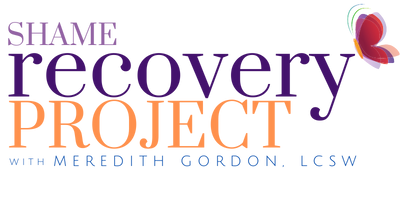Try something different.
“You are the bows from which your children as living arrows are sent forth.”
—On Children, from The Prophet, about being a parent, by Khalil Gibran
Every parent-child relationship has its own unique personality. Parents of a highly dependent adult child, however, find this uniqueness difficult to appreciate.
The Gibran quote at the top (despite its timelessly beautiful wording) perplexes these parents. Just ask. They’ve been trying to “launch” their “living arrow” for years. Their child might be 22, 32, or 42 (or older) by now—but never soared very high or got very far.
Many of these moms and dads embrace a similar ideal as the poet. All their work has not yielded “the thing” that will get their child to launch. “The thing” could be a school, a job, a friend, a therapist, a new hobby, a bible study. It might be paying off their child’s debt, starting them in a business, waking them up in the morning, doing their grocery shopping.
Unfortunately, these repeated attempts only renew and reinforce the child’s dependency—and their own. This is sometimes referred to as codependency, but that term can feel bristly because it has come to imply something “sick.” I like to think of it more as a way to describe patterns of behaviors that don’t serve the growth and individuality of two people.
Patterns in relationships are the equivalent of accumulated data in a science experiment: they yield clues. Here we are talking about clues that point to enabling.
There is nothing wrong with doing something nice for your kid. What about trying to expand the view of what “nice” is? For example, a different kind of something nice could be offering a smile; a word of encouragement (as in “great job!”); asking what they think they should do about a problem they are facing.
Enabling happens when parents perpetually do things their child they can do for themselves. It typically begins when the parent senses discomfort within themselves at having to watch their child struggle or not do something the way the parent thinks it is supposed to be done. Again, we are talking about patterns here.
Enabling (and lots of worries) can happen when there is addiction in the family and mental health issues; these are valid concerns. However, the enabling behavior by the parents, and the constant focus on the adult child, don’t address the parents’ real problems anyway.
In this regard, the “real” problem is the parent’s difficulty in focusing on themselves and accepting that the adult child’s addiction needs care the parents cannot, nor have they been able to, give.
Note: Caring about is different than caring for. Of course, you care about your child. But, also, you can’t take care of them now. Taking care of equals caring for and does not equal caring ABOUT.
Enabling keeps people small. No one gets to express their true self. One way to begin to step back from enabling is to spend some time giving attention to oneself.
Here is a meditation that can help parents cultivate curiosity and wonder about why they might be enabling their adult child. Notice, be curious and try to be patient with yourself.
MEDITATION: CURATING CURIOSITY
Curiosity is my new go-to as I explore my motives behind interactions with my child. With curiosity and wonder, I begin to explore why I did what I did. I do this with objectivity. I do this without self-blame.
I dig deeper and wait for answers to emerge. I ask myself questions I may not want to know the answer to. However, doing so will eventually help quell the perceived shame I feel or fear. This happens by exposing myself to things about myself I thought I didn’t want to know. I will find, as I sit with what I learn about myself, that my shame begins to dissipate because I will begin to understand why I did what I did. This will help me see, at a deeper level, why it did not work.
I needn’t go fishing for things “wrong” with me—trying too hard to find the reasons in order to “fix” myself. Trying too hard to find the exact reason I acted a certain way will lead me into a stagnant loop of listing every single thing I did wrong versus excavating information I can use to learn something valuable about myself.
I already know not to repeat the behavior that doesn’t work. And if I don’t yet know exactly what the behaviors are, or what triggers me to do them, that’s okay; I’m here to learn. There is no reason to berate myself for the things I did. However, becoming curious will make it less uncomfortable to examine what I did and turn off my autopilot reactions. Curiosity helps neutralize my feelings and lets me see more facets of the situation—and myself.
Self-blame only leads to me trying to take care of my adult child instead of caring about him. Self-blame also, ironically, takes the focus of what I can really do in my life to better care for myself, things that might reduce my propensity to rescue. This includes understanding why I try to rescue in the first place.
Today I look at my situation through a new lens.
Photo by Patrick Perkins on Unsplash.
